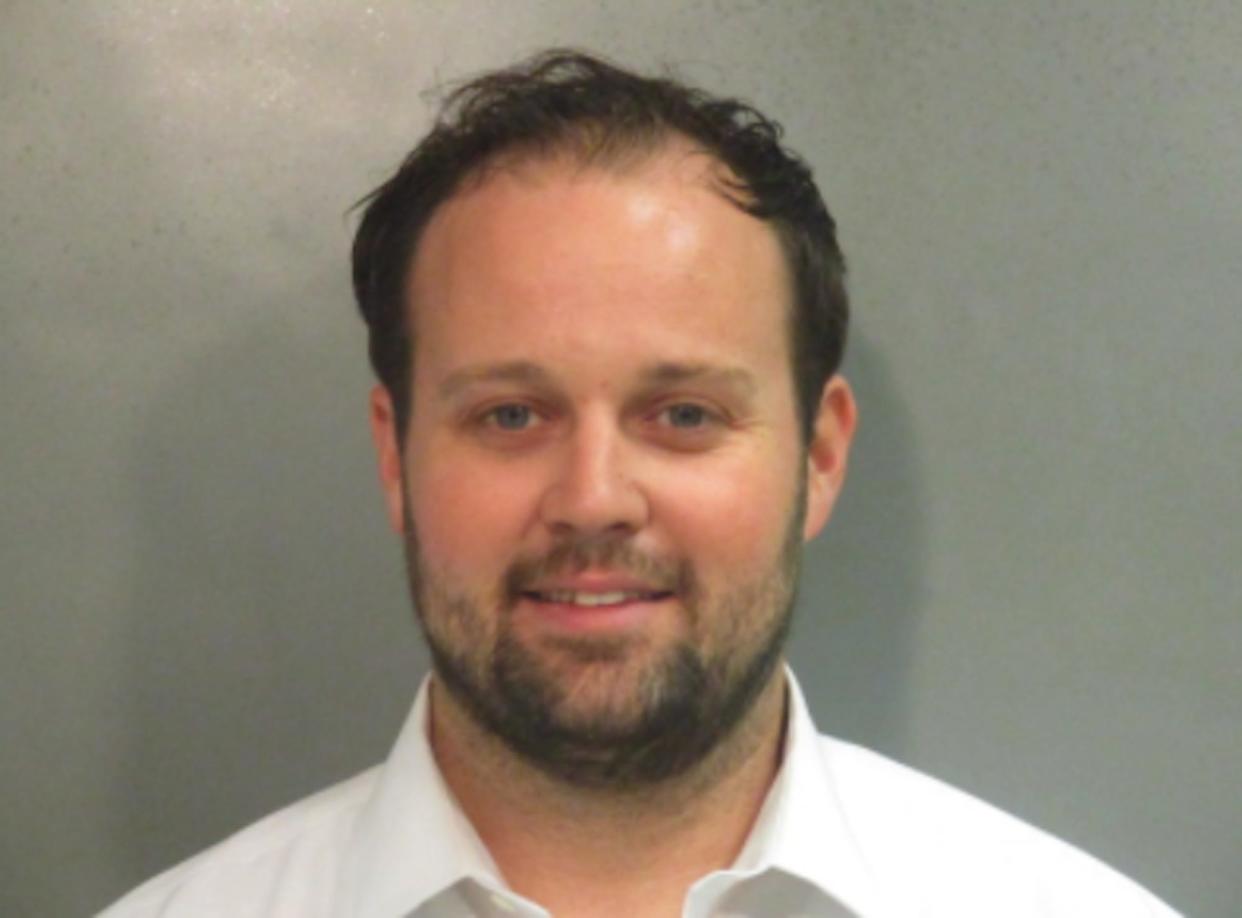Josh Duggar sentenced to 12 years and 7 months in prison for receiving child pornography

A federal judge sentenced Josh Duggar on Wednesday to 151 months in prison.
Duggar was convicted of child pornography charges last December following a jury trial.
Duggar's attorneys had requested a mere five-year sentence, while prosecutors asked the judge to grant 20.
Josh Duggar, the former reality TV personality once known for the family values and Christian faith he espoused on television, was sentenced to 151 months in prison, just over 12.5 years, on Wednesday for receiving child pornography, according to KNWA.
Duggar, formerly of TLC's "19 Kids and Counting," was convicted last December after a week-long federal trial in Arkansas. Duggar had pleaded not guilty, and has maintained his innocence even after his conviction.
US District Judge Timothy Brooks fielded a bevy of objections by Duggar's team on Wednesday, even agreeing to vacate the second charge Duggar was convicted of: possession of child pornography.
Ahead of his sentencing, federal prosecutors had sought a 20-year prison term, arguing in a sentencing memorandum that Duggar had expressed neither remorse for his crimes, nor acknowledgment of his sexual interest in young prepubescent girls. They said he posed a "grave" risk of reoffending, citing allegations that he previously molested four of his sisters when he was a teenager.
Duggar's attorneys, meanwhile, sought the minimum possible sentence of five years, arguing that their client was more a victim than a perpetrator. They cited his struggles growing up in the spotlight alongside his famous family and the frequent public scrutiny and criticism he faced. They also submitted 11 letters from Duggar's friends and relatives pleading with the judge for a lenient sentence and describing instances where Duggar had displayed generosity and compassion.
Prosecutors alleged at trial that Duggar downloaded hundreds of pieces of child sexual abuse material to his office computer at his used car dealership in Springdale, Arkansas. They portrayed Duggar as a cunning computer whiz who masterfully evaded an anti-porn "accountability software" that reported his internet activity to his wife.
A computer forensics expert testified that Duggar had essentially split his computer's hard drive into two parts: one public-facing component that used a Windows operating system and was used largely for business-related tasks, and one private component hidden behind a Linux partition. It was that hidden desktop that Duggar used to obtain dozens of image files and at least seven video files depicting the sexual abuse of children.
The material Duggar downloaded involved children under the age of 12, including one as young as an infant. Multiple witnesses throughout Duggar's year-long legal ordeal said some of the files found on his computer were among the worst they'd seen in their careers.
Duggar's defense attorneys tried to argue at trial that Duggar was the victim of a "hit and run" hacking scheme, and that another person had remotely accessed Duggar's computer and downloaded the files. They have said their client intends to appeal his sentence.
In their memorandum, Duggar's attorneys included a number of letters from friends and relatives asking the judge to grant Duggar leniency. They included letters from Duggar's mother, his wife, family friends, and members of the Duggar family's church community, all of whom described Duggar as a compassionate and generous man committed to his family and to his faith. Insider has contacted the Duggar family for comment.
On Tuesday, Brooks denied a motion from Duggar's team requesting that Brooks acquit Duggar or grant him a new trial. Duggar's attorneys had argued, in part, that prosecutors had not proven that Duggar actually viewed the child sexual abuse material that was downloaded to his computer.
Brooks disagreed, writing in a court order that there was "ample evidence he viewed the images of child pornography that had been downloaded to his business computer."
Read the original article on Insider
